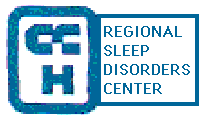What
is GE reflux?
The sensitive lining
of the esophagus ("food tube. connecting
the throat and stomach) cannot withstand repeated, prolonged
contact with stomach acid. A special "valve" mechanism (sphincter)
separating the esophagus and stomach normally prevents excessive "back
flow" (reflux) of acid into the esophagus.
When we're awake and upright, gravity and frequent swallowing
help move refluxed acid back into the stomach. Also, swallowed
saliva neutralizes the acid.
Failure of these normal mechanisms can result in pooling
of acid in the esophagus--with sometimes disastrous long term
consequences.
Severe GE reflux occurs in many people without a hiatus hernia,
and not everyone with a hiatus hernia has significant reflux,
so they are not the same.
Why does GE reflux tends
to be more prolonged and damaging during sleep?
-Lying flat eliminates the protective effects of gravity,
and swallowing frequency is greatly reduced during sleep.
-Sound sleep often renders us oblivious to heartburn and
other symptoms, so reflux may be allowed to continue.
-In sleep, stomach acid is much more likely to back up high
in the esophagus or even the throat. Asthma-like wheezing,
choking, vocal cord spasms or throat closure can result. Some
people even inhale the acid into their lungs during sleep,
with such drastic consequences as scarring of lung tissues
and lung abscesses!
What are possible symptoms
of GE reflux?
-HEARTBURN.
-SOUR BELCHING.
-CHRONIC COUGH.
-CHEST PAIN: which can mimic pain from the heart perfectly,
even improving with nitroglycerine!
-FREQUENT USE OF
ANTACIDS OR OTHER REMEDIES (ex: Rolaids®,
Maalox®, Mylanta®, Pepcid AC®).
-AWAKENINGS WITH BITTER TASTE, CHOKING. STRANGLING COUGHING,
OR CHEST PAINS.
-WHEEZING, STRIDOROUS
("CROWING") GASPS.
-VOMITING--with increased risk of inhaling stomach acid into
the lungs if it occurs in sleep.
-NO SYMPTOMS WHATSOEVER!!
Doesn't GE reflux always
cause heartburn or other symptoms?
No, surprisingly not. Some people experience extraordinarily
prolonged, continuous pooling of acid in the esophagus, lasting
over four continuous hours in full wakefulness, without any
symptoms at all!
Why not just take antacids?
-They often aren't sufficient to treat the problem and prevent
damage.
-Also, the fact that severe reflux can occur without any
symptoms (particularly in sleep) means that people may not
even know when they need them.
What tests are available
for GE reflux?
-X-rays
(upper Gl series) are not very sensitive, and they often miss the
diagnosis.
-Endoscopy
(looking at the esophageal lining with a scope) can show inflammation
or damage to the esophagus once it has occurred.
-Manometry
(pressure measurements) can clarify why reflux has developed.
-The
most sensitive and specific test for GE reflux is ambulatory
esophageal pH monitoring, a test very similar
to 24 hour "Holter monitors" used to record heart rhythms.
This powerful diagnostic tool is unique in two ways. First,
it documents the actual frequency and duration of reflux
episodes. Second, it is the only test that can prove whether
reflux episodes correlate with specific symptoms. This safe,
simple outpatient procedure can be performed in conjunction
with monitoring of overnight sleep. Unfortunately, the majority
of sleep centers do not offer this invaluable test. If you
suffer from symptoms of GE reflux and are seeking assessment,
be sure to ask sleep centers that you are considering whether
they perform ambulatory esophageal pH monitoring.
Is
there any relationship between GE reflux and breathing disorders
during sleep?
Yes!--
-Sleep apnea can induce or aggravate
GE reflux. When a person struggles to breathe
in against a collapsed upper airway, a vacuum effect is created
in the chest--which can pull acid up into the esophagus--much
like sucking on a straw! Treatment of sleep apnea can help
GE reflux during sleep, if the sleep center is equipped to monitor
esophageal acidity levels.
Sleep-related
wheezing, asthmatic symptoms and shortness of breath can be caused
by GE reflux during sleep. The reflux may escape detection if pH
monitoring is not performed, since heartburn and hyperacidity symptoms
may not be present.
-Both
sleep apnea and GE reflux can cause arousals and frightening awakenings
with choking, gasping, coughing and breathlessness. If esophageal
acidity levels are not monitored in suspicious cases, it can be
impossible to tell whether the patient is having reflux with or
without coexisting sleep apnea.
Click here to continue...

